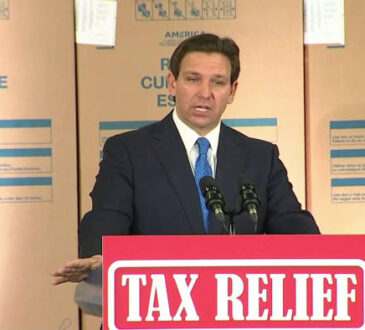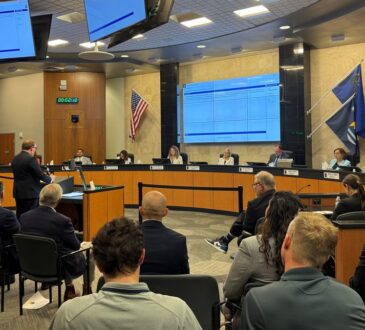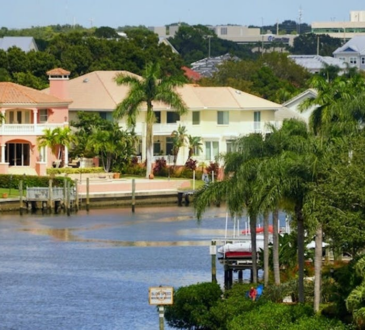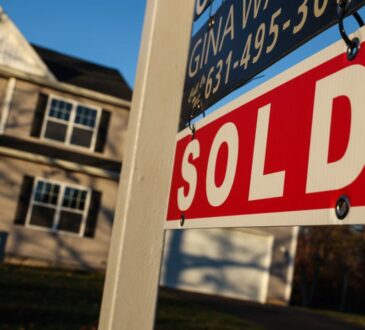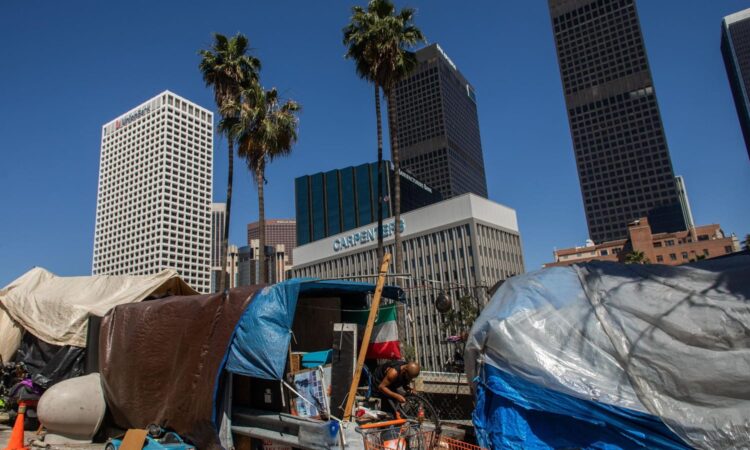
Updated Jan 12, 2024, 04:13pm EST
Topline
The Supreme Court announced Friday afternoon it will hear a case on whether municipalities are able to bar unhoused people from sleeping on public property or whether homeless people have a constitutional right to camp on public land, as cities continue to grapple with rising homeless populations.
Key Facts
The Supreme Court will hear arguments over a decision by a San Francisco-based federal Circuit Court of Appeals, which ruled in 2022 that a set of ordinances in the city of Grants Pass, Oregon, violated residents’ 8th Amendment rights by imposing a “cruel and unusual” punishment by denying homeless people a place to sleep, even if it’s on public property.
In a 2-1 decision, the appeals court argued the city cannot enforce anti-camping ordinances “for the mere act of sleeping outside with rudimentary protection from the elements, or for sleeping in a car” when “there is no other place in the city for them to go.”
Plaintiffs in the case argued that officials in Grants Pass—just over 200 miles south of Portland—began “aggressively enforcing” ordinances in 2013 that barred sleeping on public property “even if shelter is unavailable.”
The question of homeless encampments, however, has stirred debate in recent years, with lawmakers on both sides of the aisle pushing for efforts to reduce or eliminate them—California’s Gov. Gavin Newsom (D) argued in an amicus brief that encampments “foster dangerous and unhealthy conditions for those living in them and for communities around them.”
Surprising Fact
Homelessness hit a record high in the U.S. last year, jumping 12% over the course of the year, according to a report from the Department of Housing and Urban Development. Roughly 653,000 people in the U.S. were experiencing homelessness in January 2022, an increase of more than 70,000 from the number of homeless people recorded one year earlier, according to the HUD.
Key Background
Homelessness in the U.S. had been on a downward trend from 2010 to 2017, when HUD recorded 554,000 people experiencing homelessness, though homelessness has more recently shot up, with analysts attributing the rise to a string of factors. One of those reasons is a lack of affordable housing and rising costs of homeownership, Jeff Olivet, head of the Interagency Council on Homelessness, told the New York Times. HUD also attributes the recent spike to the expiration of several Covid-era aid programs designed to assist renters, including a federal moratorium on evictions that sunset in 2021. That spike in homelessness has made the issue a primary policy initiative across the country, including in California, which has the largest population of homeless people in the nation (28% of the U.S. homeless population lives in California). Last October, Gov. Gavin Newsom (D-Calif.) announced a string of initiatives aimed at tackling homelessness, including by creating more than 700 units across seven cities. Other efforts have leaned toward removing homeless encampments, with an appeals court ruling in September allowing officials in San Francisco to enforce laws to remove encampments.
Further Reading
Homelessness Hits Record High After 12% Jump This Year, U.S. Officials Say (Forbes)
What To Know About Massachusetts’ Hepatitis A Outbreak Affecting Homeless And Illicit Drug Users (Forbes)
Send me a secure tip.

